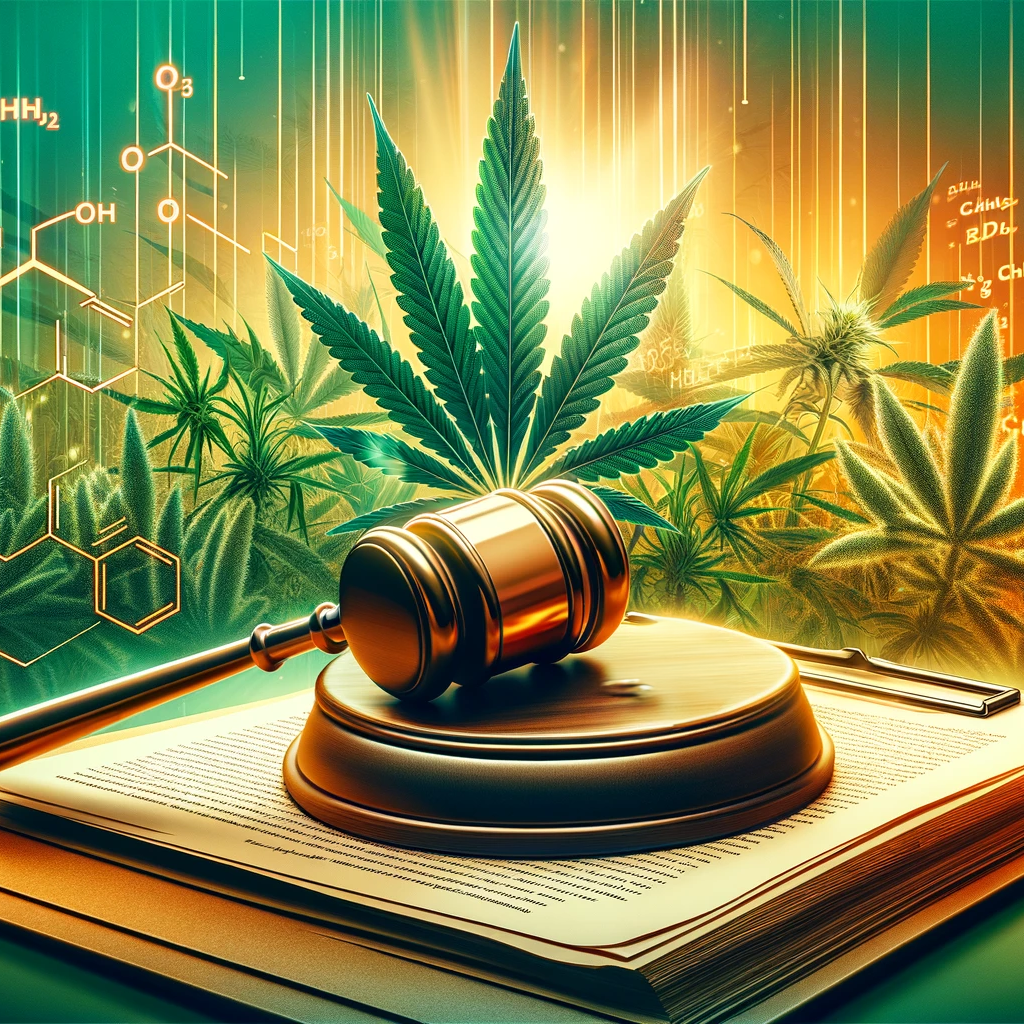Understanding the 2024 Farm Bill’s Potential Impact on Hemp-Derived Products
The 2024 Farm Bill, with its proposed amendment, could drastically reshape the landscape for hemp-derived products, particularly those with intoxicating effects.
The hemp industry is standing on the precipice of a monumental shift. With the introduction of the House version of the 2024 Farm Bill, significant changes are afoot that could alter the trajectory of hemp-derived products, especially those known for their intoxicating effects. This amendment, proposed by Rep. Mary Miller, has set the stage for a heated debate that will determine the future of these products and the businesses that depend on them.
The Amendment in Focus
At the heart of this controversy is Rep. Mary Miller’s proposed amendment aimed at addressing the legal ambiguities surrounding hemp-derived cannabinoids that induce a high, such as delta-8-THC. By redefining hemp to exclude these compounds, the amendment seeks to close a loophole that has enabled the widespread distribution of these products.
Rep. Miller’s amendment is a direct response to the rapid growth and popularity of products like delta-8-THC, which has become a popular alternative to delta-9-THC. Despite its widespread use, delta-8-THC has existed in a legal gray area, largely due to the language of the 2018 Farm Bill. This bill legalized hemp and its derivatives, provided they contained less than 0.3% delta-9-THC. However, it did not explicitly address other cannabinoids that can have similar effects.
Industry Impact
The implications of this amendment are profound. Since the 2018 Farm Bill opened the doors to hemp cultivation, numerous businesses have flourished, developing a range of products from CBD oils to hemp-derived edibles and vape cartridges. These enterprises have thrived on the assumption that as long as their products contained less than 0.3% delta-9-THC, they were compliant with federal law.
The introduction of the 2024 Farm Bill amendment threatens to dismantle this burgeoning sector. By redefining hemp to exclude any intoxicating cannabinoids, the amendment would effectively ban products like delta-8-THC, which many businesses have come to rely on. For hemp farmers and producers, this change could spell disaster, as they face the potential loss of a significant revenue stream.
Regulatory Clarity vs. Economic Fallout
The debate among legislators has revealed a stark divide between those advocating for regulatory clarity and those concerned about the economic repercussions for the hemp industry. Proponents of the amendment argue that clear regulations are necessary to protect consumers and prevent the unchecked proliferation of potentially harmful products. They point to the lack of comprehensive testing and standardization for products like delta-8-THC, which can lead to inconsistent potency and purity.
Opponents, however, warn that such stringent regulations could cripple an industry that has just begun to find its footing. Hemp farmers and businesses have invested heavily in infrastructure and product development, often betting on the continued growth of the market for hemp-derived cannabinoids. The sudden removal of a key segment of this market could lead to significant financial losses and job cuts, particularly in rural areas where hemp farming has provided much-needed economic opportunities.
Stakeholder Perspectives
As the 2024 Farm Bill makes its way through the legislative process, stakeholders from all corners of the hemp and marijuana industries are watching closely. Many are lobbying for a balanced approach that addresses safety concerns without stifling innovation and economic growth. Some industry leaders suggest that instead of an outright ban, the focus should be on establishing robust testing and labeling requirements to ensure product safety and consumer transparency.
Cannabinoid businesses, in particular, are advocating for clear, science-based regulations that allow them to continue operating while ensuring consumer safety. They argue that with proper oversight, products like delta-8-THC can be safely integrated into the market, providing consumers with more choices and supporting the growth of the hemp industry.
The outcome of the 2024 Farm Bill and its proposed amendment will have far-reaching consequences for the hemp and marijuana industries. The bill’s progress through the legislative process is being closely monitored by all stakeholders, as it will not only affect the availability of certain products but also set a precedent for the future regulation of cannabinoids. The debate highlights the need for a balanced approach that protects consumers while supporting the growth and innovation of the hemp industry.
As we navigate this crucial period, it’s essential to stay informed and engaged with the legislative process. The decisions made today will shape the future of the hemp and cannabinoid industries, impacting everything from product availability to economic opportunities for farmers and businesses across the country.

***
GreenPharms is more than just a dispensary. We are a family-owned and operated company that cultivates, processes, and sells high-quality cannabis products in Arizona. Whether you are looking for medical or recreational marijuana, we have something for everyone. From flower, edibles, concentrates, and topicals, to accessories, apparel, and education, we offer a wide range of marijuana strains, products and services to suit your needs and preferences. Our friendly and knowledgeable staff are always ready to assist you and answer any questions you may have. Visit our dispensaries in Mesa and Flagstaff, or shop online and get your order delivered to your door. At GreenPharms, we are cultivating a different kind of care.





